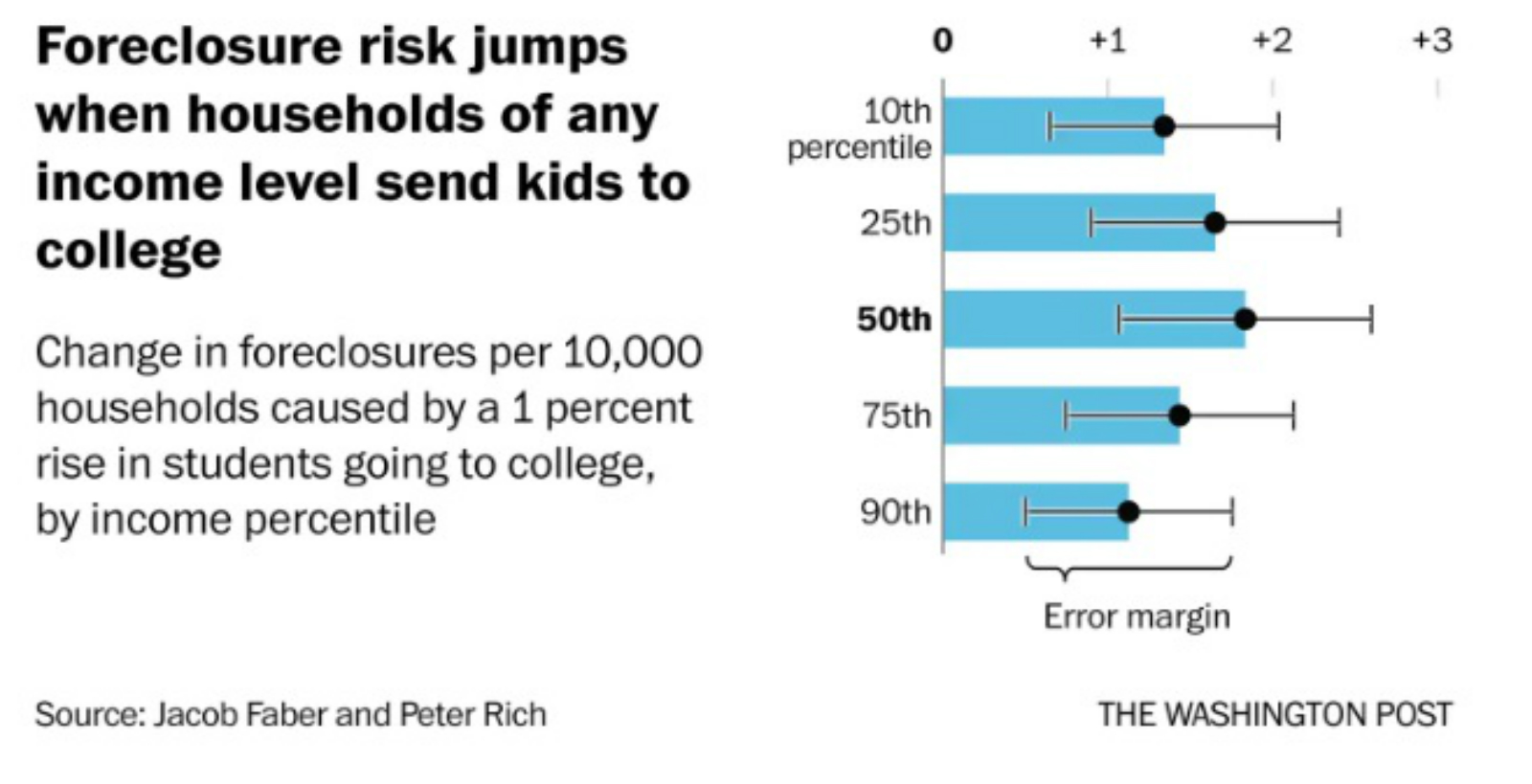The value (and cost) of higher education degrees is also pushing up student debt worldwide: Young men and women are increasingly aware of the importance of a college degree in a competitive job market, and many resort to taking out student loans to finance the costly endeavor that is higher education, according to YaleGlobal. As the proportion of young adults with college degrees has increased and governments have stepped away from subsidizing higher education, leaving students to grapple with the economic burden. The issue with this model is that poor job prospects and relatively low wages in several areas of work means that more students are defaulting on their loans or, at best, find their (metaphorical) knees buckling under the weight of loan repayments after graduation. “Economies will struggle under the growing mound of student debt as young adults delay marriage, home purchases and childbirth and have less money to spend on housing, food, clothes or entertainment … Students especially those with limited resources, struggle over whether to borrow, delay or forgo higher education.”
The heavy burden debt poses means students need to find ways to cut costs wherever possible. The day-to-day expenses of a new school year are undeniable, but, with some master planning, students and parents alike can keep these expenses in check throughout the year. Budgeting and setting financial goals are important practices for students to take up while in college, according to Collegiate Times. Mashable has also put together some tips to help students save money on back-to-school costs, including buying (or renting) second-hand textbooks, exchanging class notes for cash (which, yes, is apparently a thing), or just being mindful of your expenditures by using an app like Digit.
Even though the school year has begun, college students may still be able to scrape together a scholarship: College students who are starting out the school year strapped for tuition financing actually have a few options for finding a last-minute scholarship, Anna Helhoski writes for the Seattle Times. Some universities have specific profiles for their financial aid packages that they have difficulty meeting, and others may have found a student back in May who ended up opting for another school altogether — meaning the scholarship is waiting to be snapped up. If you’re a student who would rather circumvent the loan system, poking around your university’s financial aid department now might turn up unexpectedly positive results. In the meantime, get your ducks in a row: “To make the late-scholarship-application process easier, polish your résumé and have a basic essay template on hand. The template should include information about yourself, why you’re attending school and why you need the money.”






